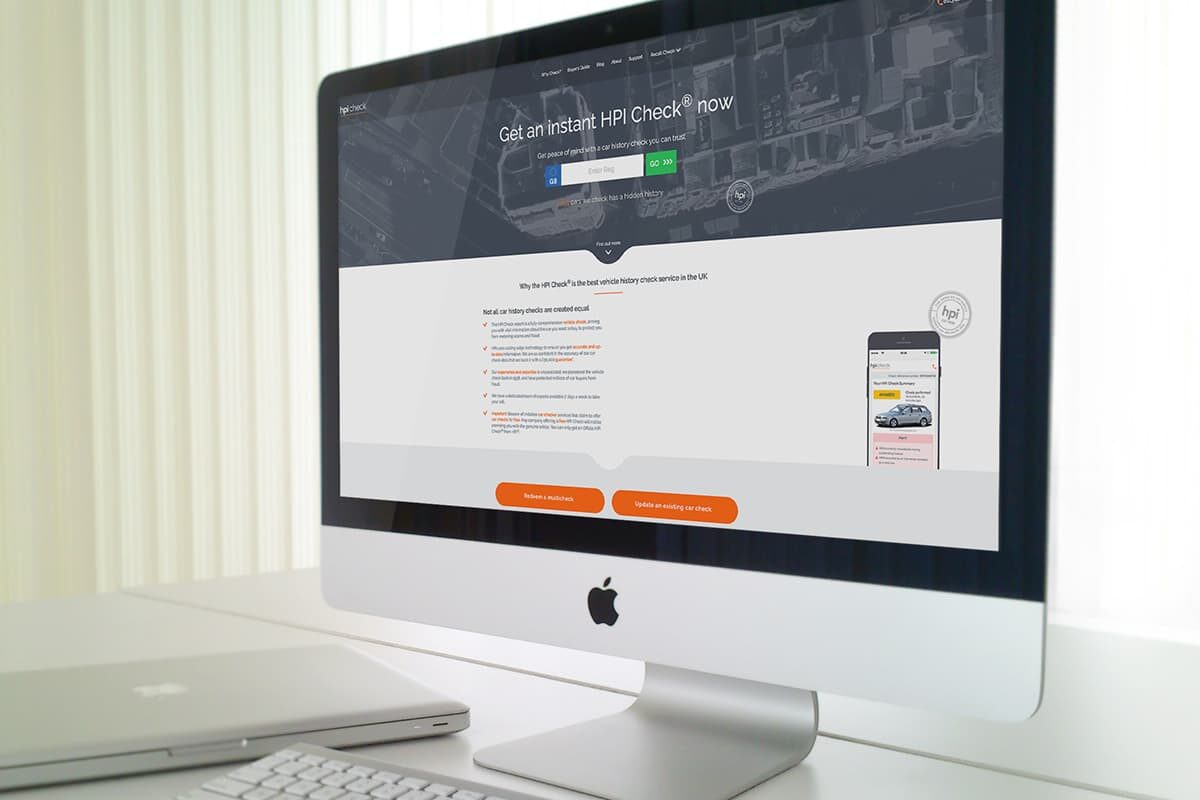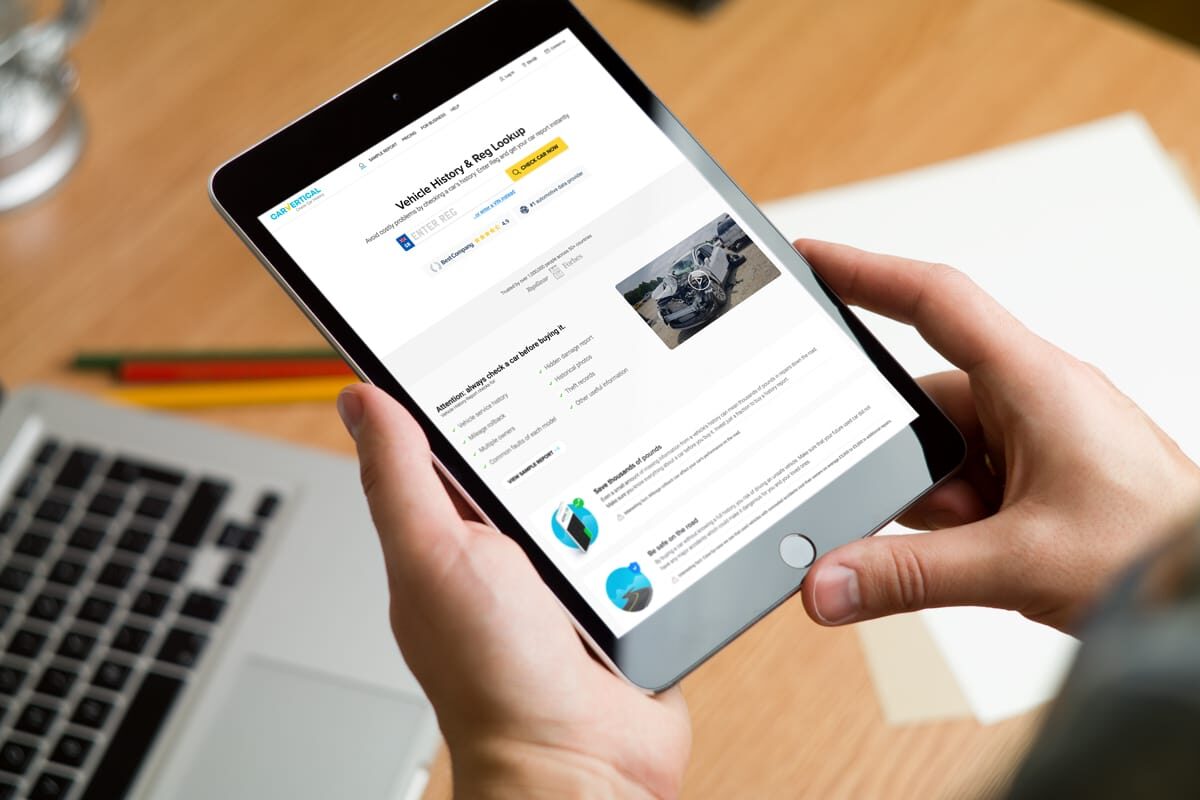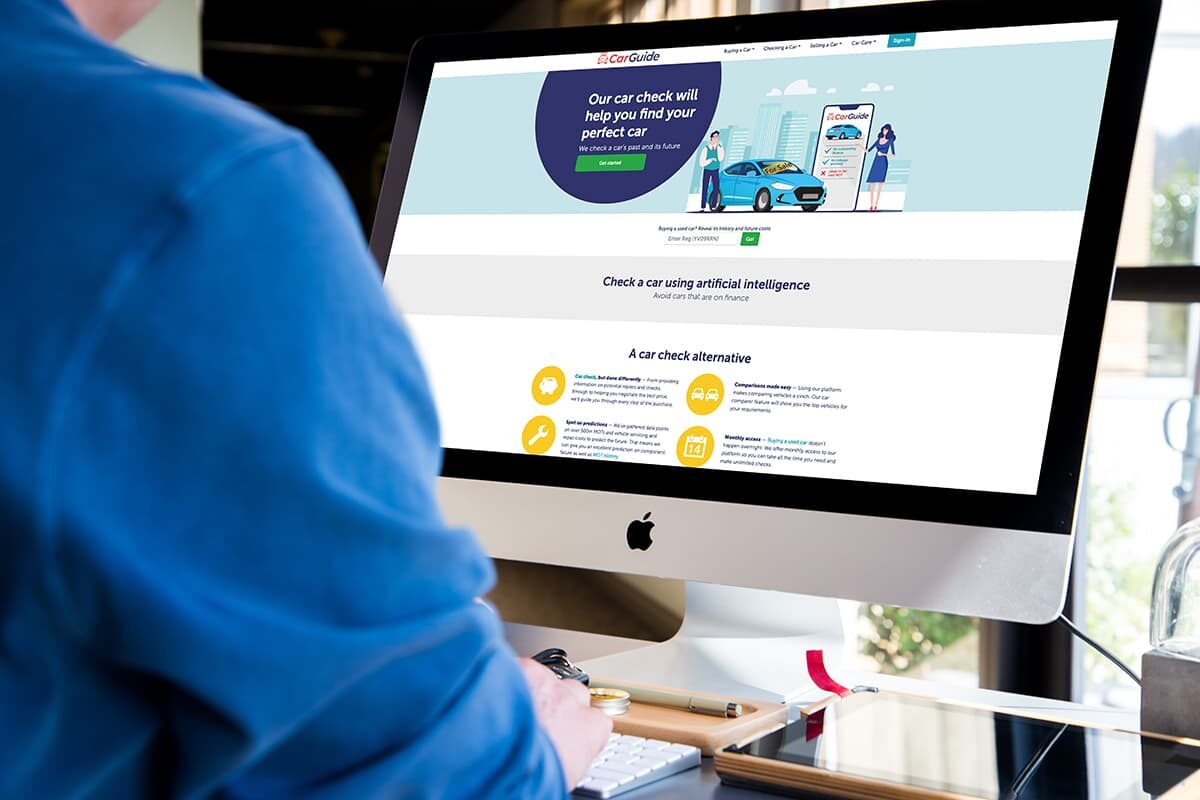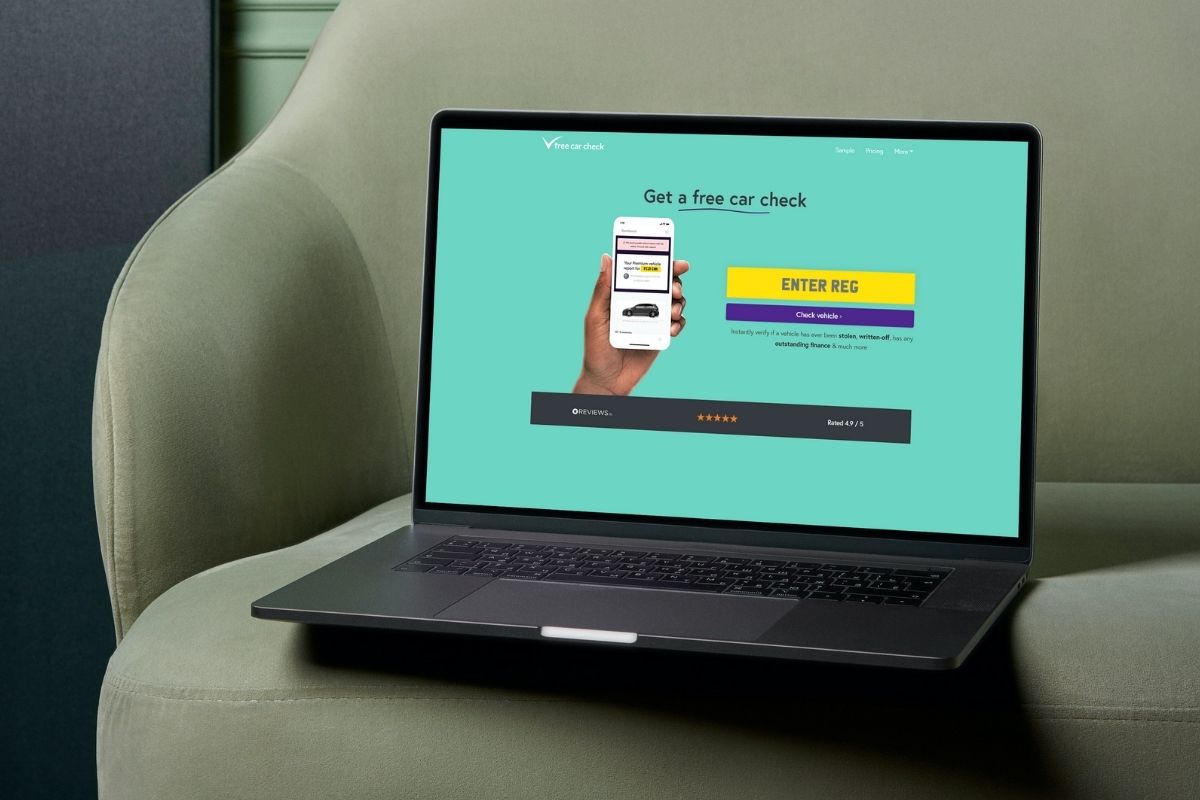You’re looking to replace your car and planning to make the most of your budget by buying used. There are certainly big savings to had in the used car market, and the opportunity to bag yourself a lot of car for the money you spend – provided you get the right car at the right price.
But what is the right car? Well for starters it’s one that has the full service history that it promises, it hasn’t got outstanding finance owed on it, there’s no hidden or unreported damage and it hasn’t been stolen.
That apparently tempting buy may look pristine, particularly if a savvy seller has spent a little cash having it valeted, but the shiny metal could be hiding terrors. The most common problem of these is outstanding finance. Missed payments could mean the car is actually owned by a finance company and not the person trying to sell it to you.
Or the problems could be much darker – such as mileage illegally rolled back so that the car appears a better bargain than it is, a practice known as ‘clocking’. It’s fraudulent and potentially dangerous.
You might be looking at a previously stolen car, one that has been in a major accident and repaired, or even written off by an insurance company. It even be a clone of an identical model.
All these could result in you losing both the car and the money you paid for it. But much worse, you could be putting yourself and your family at risk travelling in a dangerous car that shouldn’t be on the road.
However, with a little effort and in most cases a little cash, you can obtain an extensive picture of the history and the condition of that car that’s caught your eye, making it far less likely that you will be caught out. And almost all of this pre-purchase checking can be done online.
Match your market
Just how extensively you check out your intended purchase really depends on where you are buying. If the car is a manufacturer’s Approved Used model on the forecourt of a franchised dealer, you can be pretty confident it won’t be hiding any real nasties.
Manufacturer Approved Used cars also come with a warranty, which adds to the peace of mind, but of course as a result they also cost more than buying from an independent dealer or privately.
Most independent used car businesses also offer warranties, but more care is needed here – these warranties vary enormously in their actual value, while the cars on offer are generally older, higher mileage examples and more likely to have issues.
You will certainly want to make a vehicle history check – described, wrongly, by many sellers as an ‘HPI check’. HPI is one of several companies offering, at a cost, a comprehensive report on the history of a used car, particularly whether it has any finance outstanding, has ever been written off, or been reported stolen.
The problem is that HPI has been around so long that that the term ‘HPI check’ is now applied to any kind of vehicle history record – just as all vacuum cleaners are usually referred to as Hoovers.
Beware signs on forecourts proclaiming “free HPI checks” – official HPI checks cost and anyone claiming to offer a free one is actually providing a vehicle history check. You have no way of knowing just how extensive that check will be – in most cases it will be no more than you can do yourself on Government websites.
A comprehensive vehicle history check is essential if you take the most risky option of buying privately. We’re not saying you should ignore that car you’ve always wanted sitting on a driveway with a For Sale sign on it, but you should certainly start off sceptical. If, after doing the research, you are still tempted then it might be worth paying out for the most comprehensive, but also most expensive, pre-purchase check – a physical vehicle inspection.
Particularly useful if you are not particularly mechanically savvy, full vehicle inspections cost around £150-£200. They also need the permission of the seller, but if they refuse you should ask yourself what they might be scared of…
Inspections involve an expert crawling all over the car and taking it on a road test, then providing a comprehensive report on its condition. They don’t take it to a workshop or dismantle anything, so this kind of check is not completely foolproof, but it does give you a much stronger picture of what you are buying,
So before we look at some of the best sites to get a car check, resign yourself to spending some money. Whether that’s £20 or £200, it’s a small price to pay when you plan to spend thousands on a used car, especially if it reveals that the car has a dark past…
Step 1: The basics
DVLA check
URL: gov.uk/get-vehicle-information-from-dvla
The first step to ensuring you don’t get caught out is quick – and free!
Basic vehicle information is listed on the Driver & Vehicle Licensing Agency (DVLA) website. All you need is the make and model of the car, its registration number and the mileage shown on the dashboard. Try and ensure you see and record the mileage shown – don’t rely on the seller to tell you.
Entering the registration on the DVLA website reveals a whole lot of information on the car that can immediately show if it is what it appears to be. One click then links to the government’s MOT database, proving whether the car actually has a valid MOT certificate, when it expires and, crucially, a history of past tests. This information includes any advisories, so you can compare with any “full service history” that might be offered by the buyer and get an idea for what money you may need to spend in months ahead.
Each MOT test also records the mileage, so you can check if what the clock reads now tallies with previous readings. If looking at this information throws up any questions, at the least ask the seller to explain them. And if you are not fully satisfied with the answer, walk away.
Step 2: History checks
HPI Check
URL: hpicheck.com
As we’ve already mentioned, HPI is the granddaddy of used vehicle checking services, but you might initially be put off by the firm’s ‘Basic’ check costing £10, the same as mycarcheck’s comprehensive option.
However your tenner does buy the most important info – insurance write-offs, and stolen vehicles. To get such features as the MOT history requires HPI’s £20 Comprehensive Check, but this includes whether the car has been cloned from an identical model, shows up discrepancies in the recorded and apparent mileage and reveals whether the logbook has been stolen.
The comprehensive check also provides a host of extra information, such as what the model commonly fails MOT tests on, how much it should be worth and what it will cost to own, down to the cost of fuel.
HPI also offers a multi-service – three different cars for £30 and is so confident of its data that all full checks include a £30,000 guarantee.
CarVertical*
URL: carvertical.com/gb
Even just a few facts missing from a car’s history can save you thousands of pounds in repairs down the road, or could save you and your family’s lives if you were driving an unsafe car without knowing it. That’s the warning CarVertical gives on the home page of its website, followed by descriptions of the four short steps to take to get your report.
It has a huge database, compiled using information about individual cars, records from national and private registries, insurance company databases and stolen vehicle records internationally, and confirms all information so that it’s confident of its authenticity. A key feature is that the checks are all Europe-wide, rather than just UK-wide, meaning that any car privately imported from Europe can be checked.
For £30 (which has jumped substantially from £13 last year), potential used car buyers will get research from the stolen database, information about previous ownership, mileage history, accident reports, information about when maintenance is due and, of course, notes on any outstanding finance. Photos are also provided were they’re available. A two-car multiple check is available for £36 – meaning your second check is only £6 – and a three-car check is £48. These multi-car checks have also doubled in price since we last checked them last summer.
Car Guide*
URL: carguide.co.uk
Car Guide is slightly different from a traditional vehicle history check. Its range of services include all the vehicle history elements of rivals, but it also cleverly predicts the likely cost of future services and repairs.
There is a free option that includes the same MOT history you can get from the DVLA, although it also includes whether your chosen car has ever been listed as salvage or as a taxi (taxis are considered quite abused cars, typically showing high mileage mostly over lots of short journeys), and it predicts likely failure points for future MOTs.
For £10 (up from £8 last summer), you can check out two cars and get a ‘Buyers Report’ on one of them, which includes revealing whether the car has outstanding finance, has been written off, is stolen or scrapped, plus likely service schedules and their costs.
Hard to beat for value is Car Guide’s £15 30-day access (was £11 previously), allowing you to check as many cars as you want, shortlisting and comparing them, and producing Buyers Reports on two of them.
MotorCheck*
URL: motorcheck.co.uk
MotorCheck promises wide coverage because it’s the only history check provider with a presence in the UK and Ireland. This, it says, ensures the best coverage and expertise in both of these market. It backs that up with a guarantee of up to £30,000 on every report it does.
The agency offers a free basic check, which includes confirmation of make and model, number of doors, fuel type and colour, but if you need a bit more information than that (and most people do), it’s worth opting for one of the paid-for services.
This starts at £10 for one check and for that you get a long list of inspections including, finance, mileage and write-off checks, whether the car has been scrapped or stolen, if it has ever been a taxi, whether its number plate or colour has changed, list of recalls, a valuation and more.
If you have more than one car to put under the microscope, look for Motorcheck’s bundles: three for £15 or five for £20. There’s a chance to see a sample report before you buy, and its busy website contains lots of useful information and tips. It’s worth a look.
Car Analytics

URL: caranalytics.co.uk
Car Analytics offers a free car history report to check details of vehicle tax and MOT status, but, as with similar services, you’re probably going to want more than that – which you’ll have to pay for.
The basic check, at just £2, gives reasonable peace of mind and is ideal as a first port of call. It includes the number of previous owners, whether the number plate or vehicle colour has been changed, whether the vehicle has been scrapped, if its VIN number matches official records, plus there’s a valuation.
Upgrading the check to a full report, for £10, will get you information such as outstanding finance, police stolen status, whether the car has been an insurance write-off or whether it has had a certificate of destruction, which means it has been destroyed. There’s also a ‘high-risk’ check regarding any financial disputes and a mileage anomaly check.
The site includes some interesting reading in the form of useful guides.
Freecarcheck
URL: freecarcheck.co.uk
Any organisation that calls itself Freecarcheck has, at least, to offer one thing: a free car check, and it does. Like some other agencies, Freecarcheck offers the option of a free report and then encourage you to upgrade to a fuller check.
Freecarcheck’s free car check is quite detailed. For a start you get a picture of the car you’re checking (not the exact vehicle) along with tax and MOT details, whether it’s an import, the engine size, power, engine number, colour, number of colour changes, year of manufacture and date of registration.
Upgrading is still advisable if you are serious about spending serious money though and the company’s premium report, for £10, gives greater peace of mind, including outstanding finance, whether it has been stolen, number of keepers, mileage anomalies, number plate charges, whether it has been a write-off and much more.
As well as cars, Freecarcheck also runs checks on coaches, motorcycles, trucks and even, it says, tractors!
Mycarcheck
URL: mycarcheck.com
If your budget is very tight this could be the best option. Mycarcheck does offer a free service, called a Facrtsheet, but all it provides is a valuation of how much the car should be worth and its MoT status and history – information you can get from the DVLA website.
More useful is the £4 basic check. This will reveal if the car has ever been stolen, exported, scrapped or written off by an insurance company, as well as providing more details about the car.
Crucially however, the Basic Check does not include outstanding debt or finance. Adding just that essential information bumps the price up to £10 for the ‘Comprehensive Check’.
Mycarcheck does have one major plus – its extensive multi-car service. Five comprehensive checks cost £30, 12 checks are £50 and, if you are really undecided, you can get 20 checks for £75. All of these multi-car checks have increased by £5 since last summer.
Step 3: Vehicle inspection
ClickMechanic*
URL: clickmechanic.com/pre-purchase-inspection
ClickMechanic claims that one in six used cars needs repairs costing more than £500 – incidentally, the same odds as playing Russian Roulette. So having a proper pre-purchase inspection could potentially save you hundreds of pounds.
ClickMechanic’s prices look like a bargain, starting at less than £60. The company claims that its services are, on average 40%, cheaper than an equivalent inspection by the AA or RAC.
There are three levels of inspection available – basic, standard and premium – ranging from £58 to £125, and ClickMechanic offers same-day or next-day service once you and the seller have agreed a suitable time.
Any vehicle up to 7.5 tonnes can be inspected, although there are a few exceptions. ClickMechanic won’t inspect any car that has previously been written off by an insurance company (which should be listed by the seller as Cat S or Cat N), privately imported cars (like Japanese ‘grey’ imports) or motorhomes.
AA
URL: www.theaa.com/vehicle-inspection
The AA’s vehicle inspection is typical of the most extensive pre-purchase checking you can carry out and offers two options beginning with the ‘Basic’, costing “from” £142 and only available for cars up to ten years old.
The engineer provides a report, with photos, focusing on up to 155 check points, plus a road test of up to five miles. Included are the body, engine compartment, electrics, suspension, steering, clutch, gearing, exhaust, fuel system, brakes, wheels and tyres.
A Comprehensive inspection currently costs from £191 and extends the areas covered up to 206 points, checks the bodywork for accident damage and extends the road test for up to 10 miles.
RAC
URL: rac.co.uk/buying-a-car/vehicle-inspections
The RAC runs a similar series of vehicle checks to its main rival. The ‘Basic’ test costs £110 (it’s jumped £11 in the last year), and is a 218 point mechanical and structural inspection plus a three-mile road test. Move up to ‘Comprehensive’ and you’ll get a 307 point check with a ten-mile road test.
At £254 (an increase of £15 in the last year), the ‘Advanced’ test includes diagnostic testing of key parts of the vehicle, analysing brake fluid and extending the road test up to 20 miles. The engineer’s report will also include photo evidence.
This article was originally published in January 2021, and most recently updated in February 2023. Additional reporting by Tom Johnston and Stuart Masson. All prices correct as of February 2023 but have been rounded up to the nearest pound (for example, £10 instead of £9.99).
*The Car Expert has commercial partnerships with Car Guide, carVertical, ClickMechanic and MotorCheck. If you click through to their websites and proceed to purchase a used car history check, we may receive a small commission. This does not affect the price you pay.









